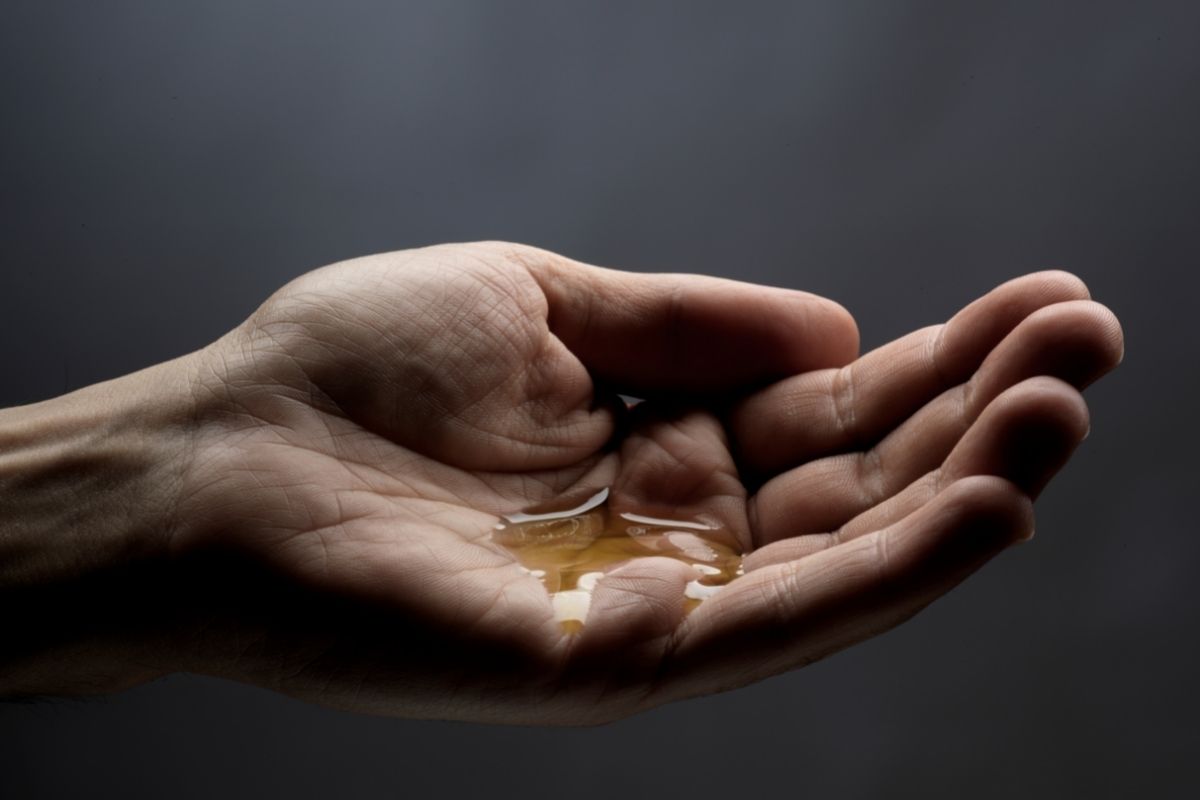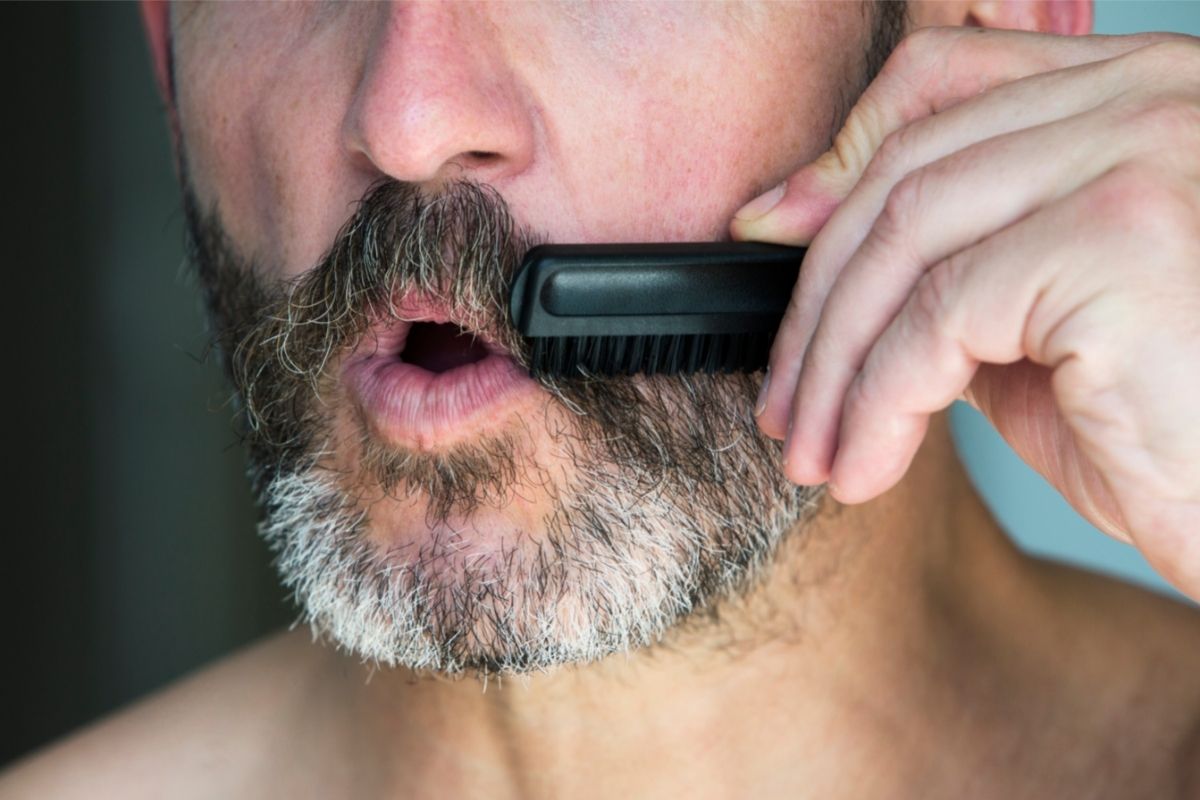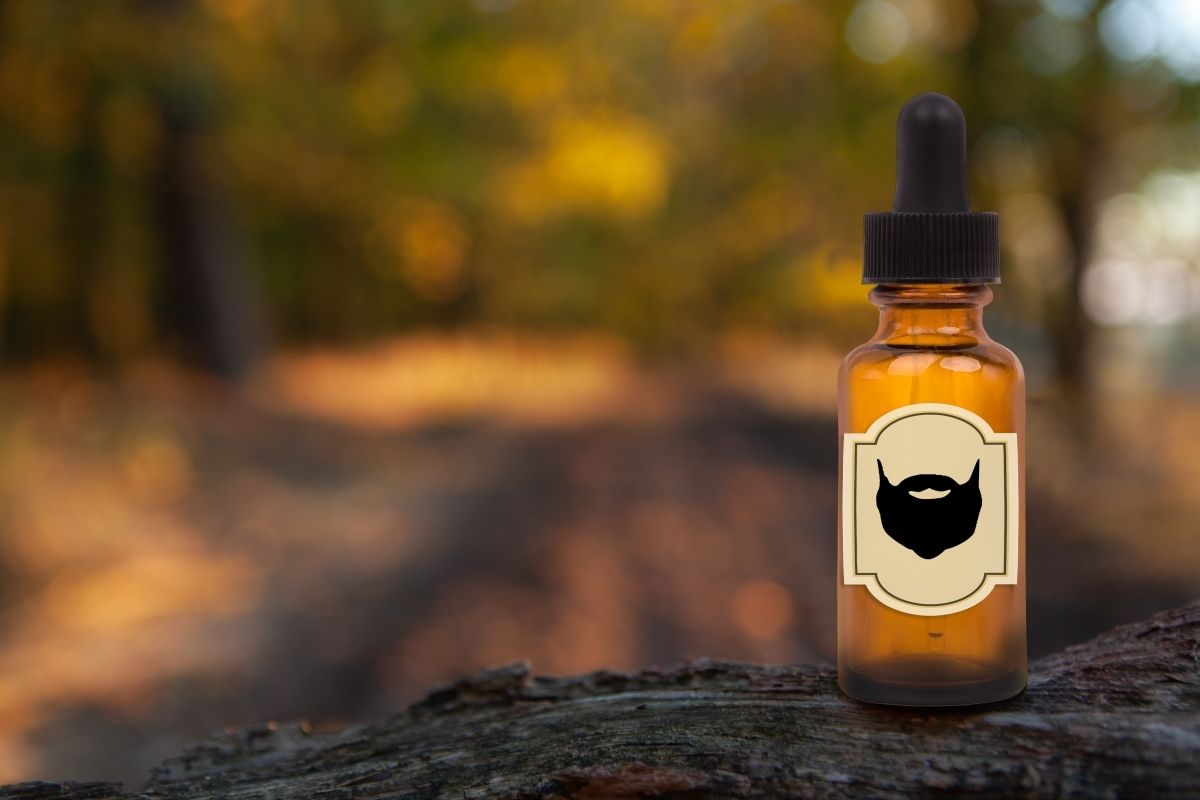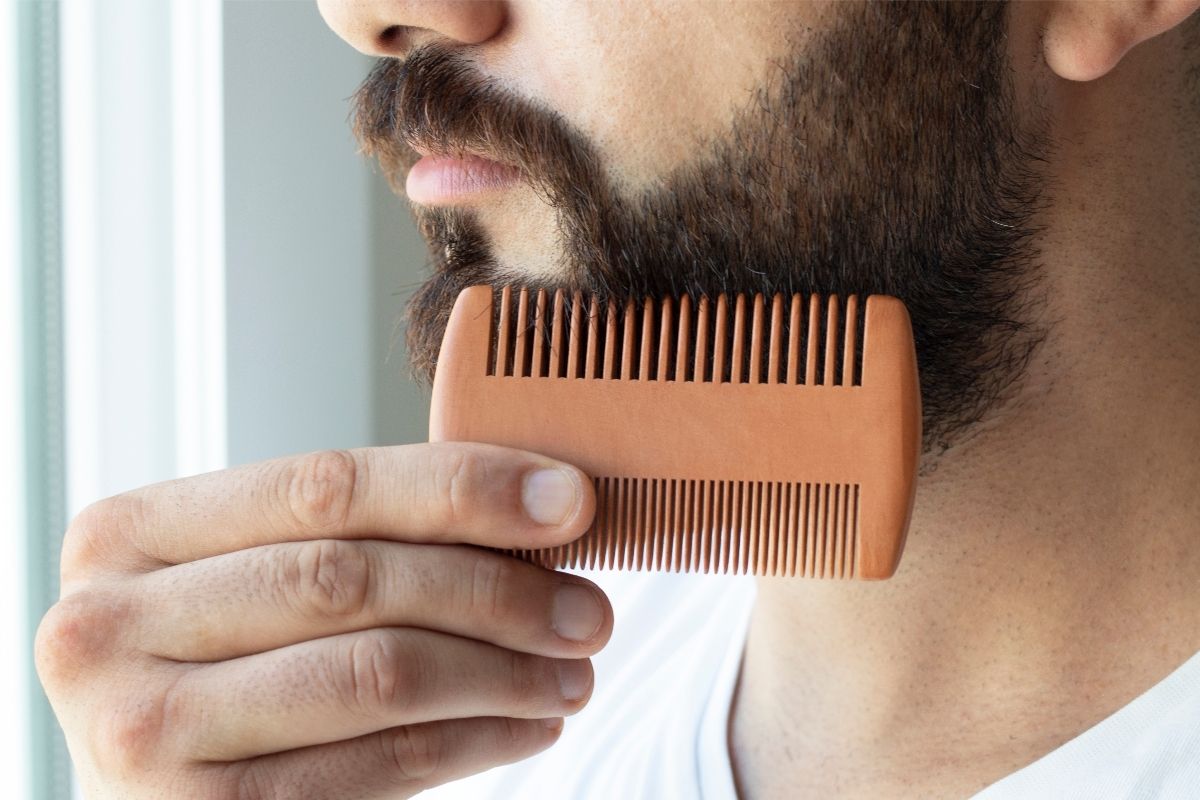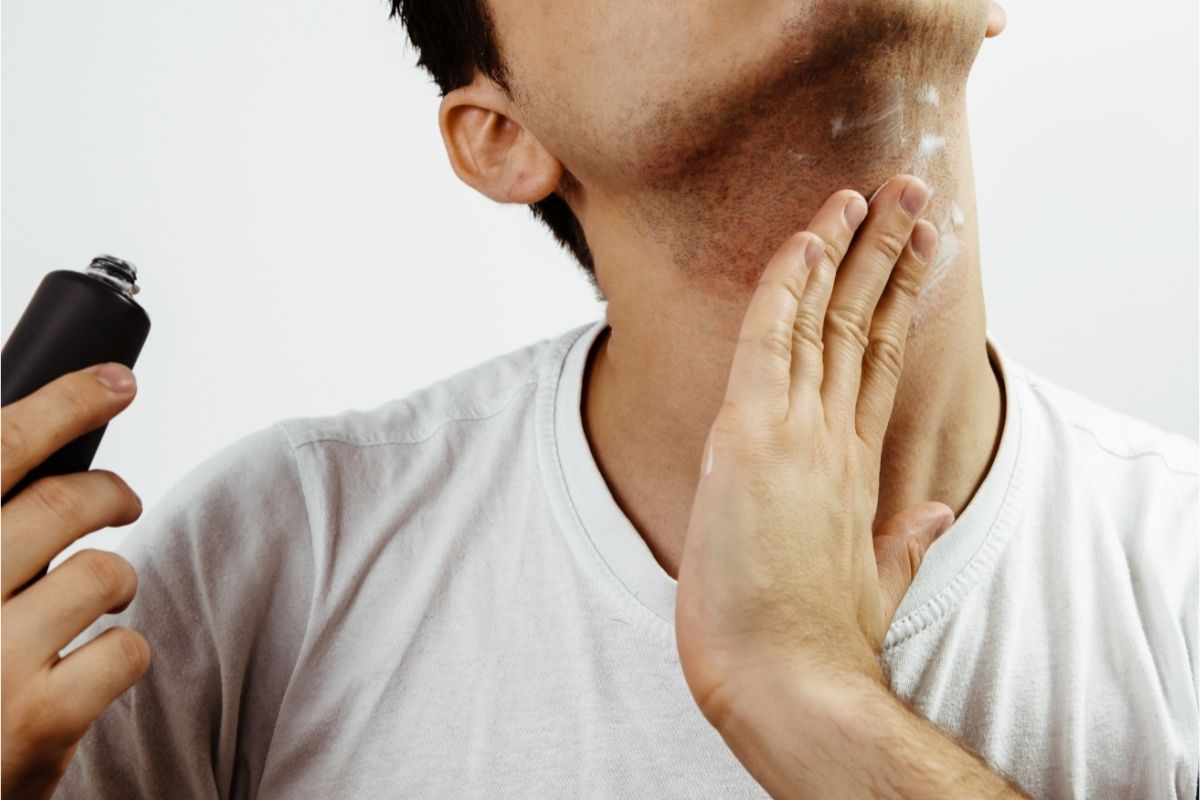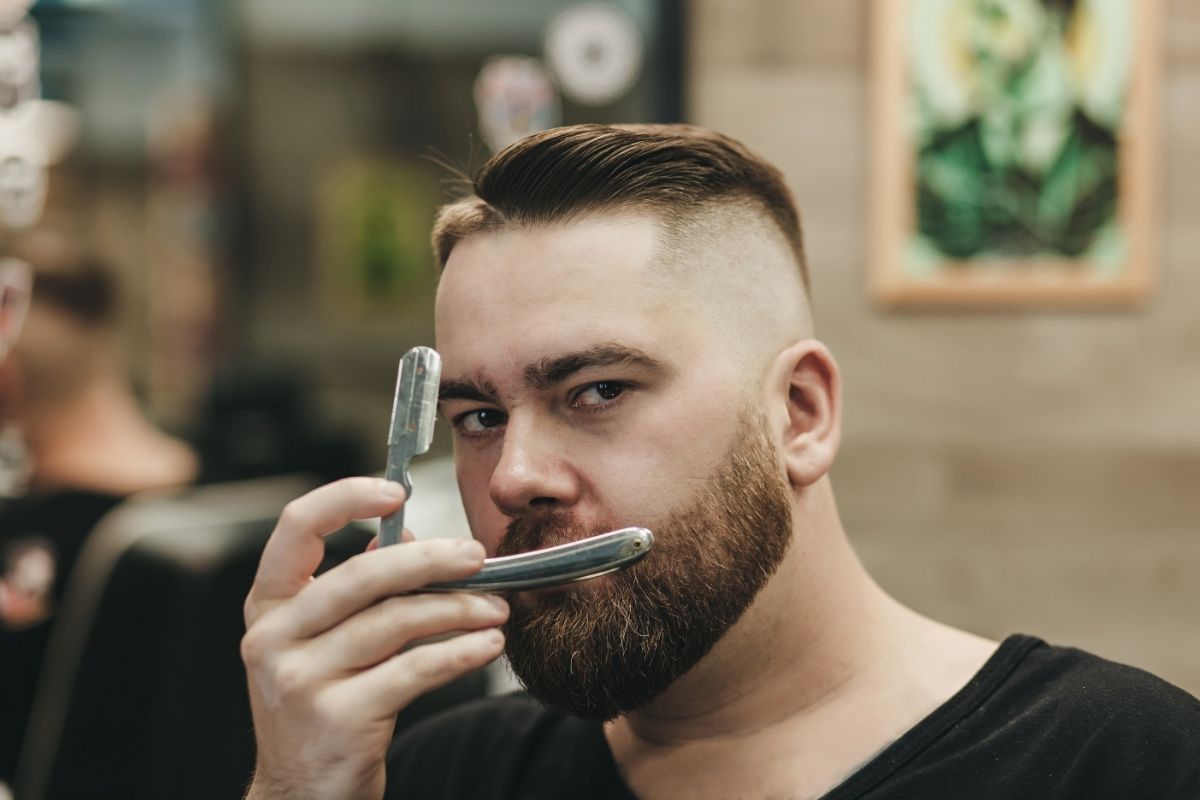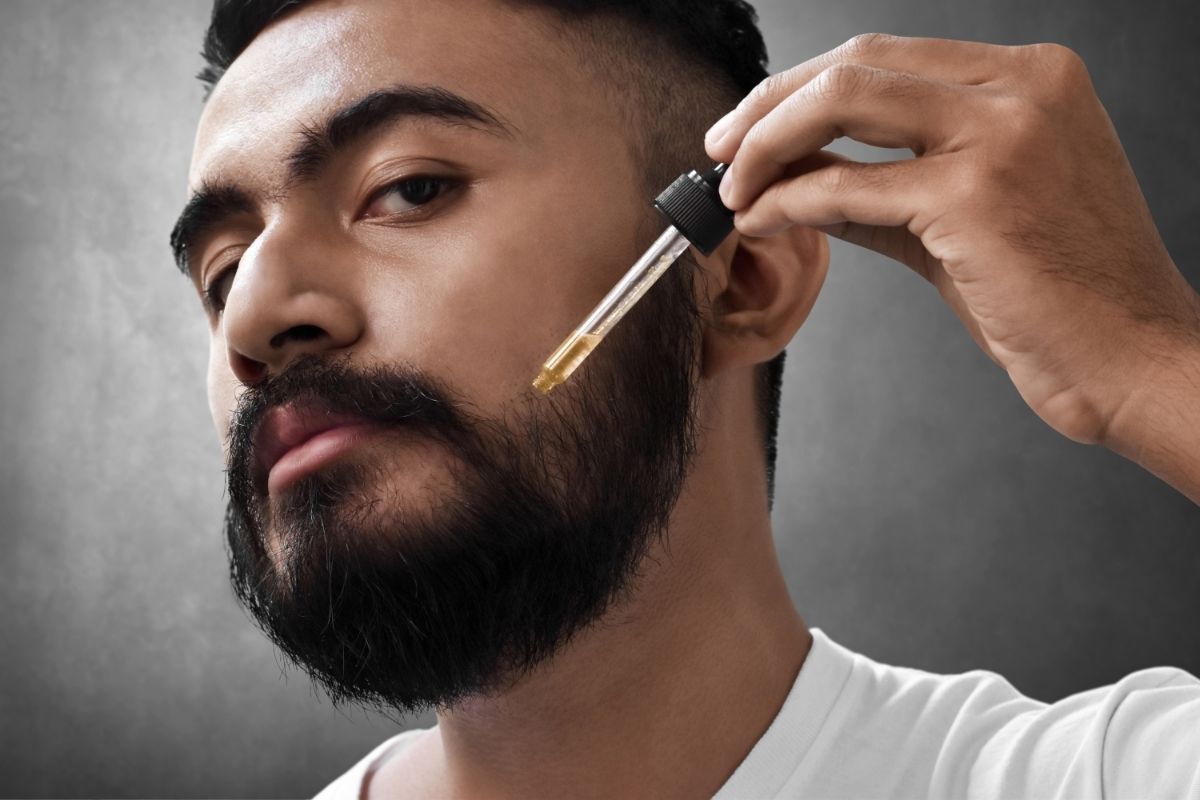Whether you’re growing a beard for the very first time or you’ve had one for a number of years, it’s not uncommon for facial hair to become itchy – so don’t panic, you’re not alone!
Some beard itching can be mild and barely noticeable, whereas other forms of itching can be incredibly irritating and keep you awake all night. This begs the question – what exactly causes beard itching and how can it be prevented?
In this guide, we’ll take a closer look at five of the common causes for beard itching, as well as a few of the most effective remedies you can use to resolve the problem. We’ll also look to answer a couple of the frequently asked questions.
Common Causes Of An Itchy Beard
1). Dry Skin
Having dry skin or “xerosis” is perhaps the most common reason for an itchy beard. This can develop for a number of reasons, including genetics, use of medications, diseases, and when the weather is either dry or cold.
It’s worth noting that skin conditions like eczema and psoriasis can contribute to your skin feeling incredibly dry – which subsequently leads to an itchy and irritated beard.
Using shampoos, soaps, and facial care products can also dry your skin out due to the fact they have the potential to affect the skin’s natural oils.
2). Growing It Out
If you decide to grow your beard out after having shaved it for a number of years, your face will likely itch.
This is because when you shave your beard, you effectively leave a sharp edge on the end of each hair inside its follicle (the tube which shields each hair).
However, when you let your beard grow, this sharp edge can often scratch against the follicle, causing an uncomfortable itch.
3). Ingrown Hair
This typically occurs when a hair that’s recently been shaved grows back into its follicle, rather than out. If you have an ingrown hair, you’ll quickly notice it because it causes the follicle to become red, itchy, inflamed, and often painful.
It’s worth keeping in mind that ingrown hairs are most common among people who have tight, curly hair and a beard of a similar nature.
4). Tinea Barbae
Tinea Barbae is caused by a type of fungus called dermatophyte and is a fungal infection that affects the facial hair region.
It typically appears as red, inflamed, and crusty skin around the cheeks, mouth, and under the skin. The infection is often compared to ringworm of the scalp, also known as “Tinea Capitis”.
There are two types of Tinea that cause the beard to itch: Tinea Verrucosum and Tinea Mentagrophytes.
5). Seborrheic Dermatitis
This is a skin condition that usually affects your scalp, but can also occur on your face and around your beard. This is particularly the case if your skin is naturally oily.
Some of the most common symptoms of Seborrheic Dermatitis include yellow, greasy scales, and flaky, red skin. It’s important to note that these flakes can often fall off when you rub your skin or beard hair.
Remedies For An Itchy Beard
1). Shave Properly And Safely
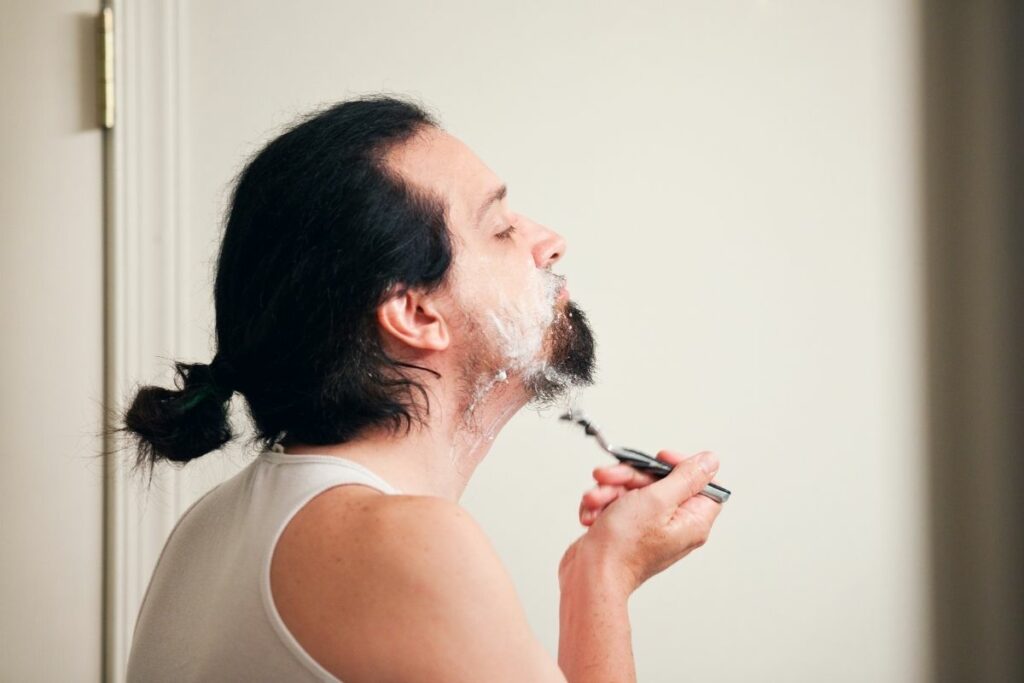
Shaving properly can minimize the risk of suffering from an itchy beard. To do this, make sure you wet your skin and beard before shaving so it’s a little softer.
Shaving gels and creams for sensitive skin are the most effective if you have dry skin, and make sure you follow the direction your beard grows when shaving it.
What’s more, it’s also a good idea to change your blades or razor every six to seven shaves, as well as storing them in a dry area.
2). Maintain Good Hygiene
Maintaining good levels of hygiene can keep your skin and beard clear of dirt, oil, and bacteria build-up. Listed below are four things you can do to prevent your beard from itching.
- Shower or bathe on a regular basis, at least once every other day
- Use a beard shampoo or wash that’s specially designed for beard care
- Use beard conditioner with either argan oil or jojoba oil to keep your facial hair as naturally oily as possible
- After shaving or trimming your beard, apply a natural aftershave lotion, ideally one which contains aloe vera or tea tree oil
3). Treat Conditions With Appropriate Medication
If you have an infection or skin condition that’s making your beard itch, it’s important to treat it quickly and effectively with appropriate medication.
For example, if you have dry skin or “xerosis”, make sure you apply a good facial moisturizer.
Furthermore, if you suffer from a more serious condition like seborrheic dermatitis, you’ll need to find a suitable antifungal product, as well as a low-dose topical steroid such as hydrocortisone.
Frequently Asked Questions
How To Treat Dandruff?
Dandruff is a very common problem for most people. It can be caused by many factors such as stress, diet, hormones, and genetics. Dandruff usually affects the scalp but it can also affect other parts of your body such as your beard.
The most effective way to treat dandruff is to use good beard shampoo and conditioner – ideally one with anti-dandruff ingredients.
It might also be a good idea to add a couple of drops of tea tree oil to your beard shampoo. This is because tea tree oil contains natural antifungal properties which can help in treating dandruff.
How To Soften Your Beard?
If you want to make sure that your beard stays soft all the time, then you should use an aftershave lotion. It will help moisturize your skin and keep your beard looking smooth and soft.
The best thing about using a high-quality aftershave lotion is that it doesn’t have any harsh chemicals in it. You can also apply a few drops of olive oil on your beard before going to bed to help keep your beard soft during the night.
The Bottom Line
To conclude, suffering from an itchy beard isn’t uncommon, so it’s important not to worry too much.
Yes, there are several factors that can cause your beard to itch, but there are also a number of effective remedies that can quickly solve the problem.
Hopefully, with the information we’ve provided in this guide, you’ll be in a much better position to tackle the problem if you ever come across it!
- How To Trim A Beard With Scissors - February 28, 2022
- How To Make Your Beard Soft - February 28, 2022
- How To Bleach Tips Of Guys Hair - February 28, 2022

